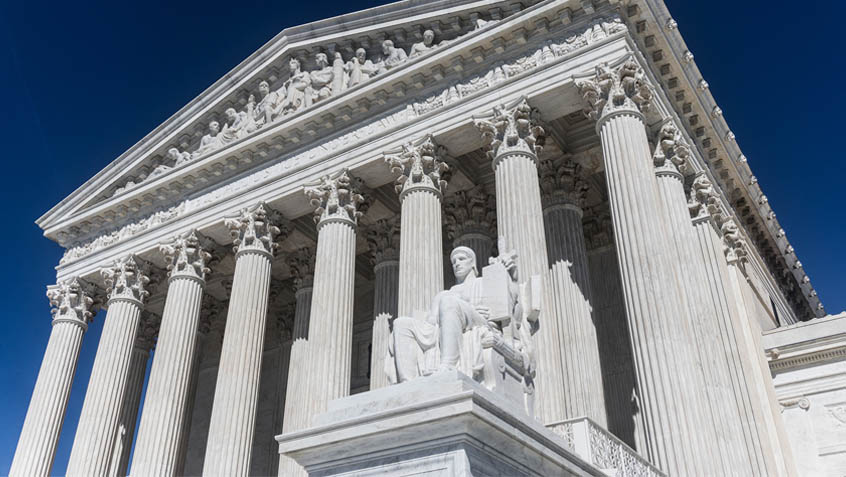
Biden Administration Begins Reversing Harmful Public Charge Rules
This week, the Biden administration began work to reverse harmful immigration rules and policies that were put in place by



This week, the Biden administration began work to reverse harmful immigration rules and policies that were put in place by

The non-partisan Kaiser Family Foundation (KFF) recently released an issue brief on the various state Medicaid waivers issued by the

As the end of the Trump presidency nears, his administration continues to try and push through last-minute regulations that could have sweeping effects on access to health care and coverage. These regulations affect Medicare, Medicaid, and the Affordable Care Act , putting millions of older adults, people with disabilities, and families at risk.

The incoming administration will have the opportunity to impact how Americans experience and access health care. Two organizations, the Kaiser Family

In the waning days of the Trump administration, the Department of Health & Human Services (HHS) and the Centers for Medicare & Medicaid Services (CMS), along with other federal agencies, are rushing to propose and finalize various rules before President-Elect Biden takes office. Many of these rules will face increased legal jeopardy for lacking standard notice-and-comment rulemaking in some way. Others are likely to be delayed or withdrawn by President Biden.

The American Cancer Society Cancer Action Network released a paper this week that outlines problems and potential solutions for various issues within Medicare appeals processes. The hurdles in various appeals processes can pose insurmountable burdens for people with Medicare who need access to care, services, medication, and items.

On November 10, the U.S. Supreme Court heard oral arguments in a case that could up-end the country’s entire health care system. The case, California v. Texas, was brought by 18 states and the Trump administration. If successful, it would strip health care coverage from millions of Americans

The Medicare Rights Center, along with over 1,800 other individuals and organizations, submitted comments in opposition to this waiver in September, while the Trump administration received a total of eight comments in support.

The general election on November 3 could have significant ramifications for many health care programs. State, local, and federal candidates offer various perspectives on what the U.S. system should look like and how programs should be supported or dismantled. Because of its vast importance, health care is always on the ballot.

On October 13, the Social Security Administration announced that the cost-of-living adjustment (COLA) for 2021 will be 1.3%, which amounts to a modest $20 a month increase for the average retired worker.

This week, the Biden administration began work to reverse harmful immigration rules and policies that were put in place by

The non-partisan Kaiser Family Foundation (KFF) recently released an issue brief on the various state Medicaid waivers issued by the

As the end of the Trump presidency nears, his administration continues to try and push through last-minute regulations that could have sweeping effects on access to health care and coverage. These regulations affect Medicare, Medicaid, and the Affordable Care Act , putting millions of older adults, people with disabilities, and families at risk.

The incoming administration will have the opportunity to impact how Americans experience and access health care. Two organizations, the Kaiser Family

In the waning days of the Trump administration, the Department of Health & Human Services (HHS) and the Centers for Medicare & Medicaid Services (CMS), along with other federal agencies, are rushing to propose and finalize various rules before President-Elect Biden takes office. Many of these rules will face increased legal jeopardy for lacking standard notice-and-comment rulemaking in some way. Others are likely to be delayed or withdrawn by President Biden.

The American Cancer Society Cancer Action Network released a paper this week that outlines problems and potential solutions for various issues within Medicare appeals processes. The hurdles in various appeals processes can pose insurmountable burdens for people with Medicare who need access to care, services, medication, and items.

On November 10, the U.S. Supreme Court heard oral arguments in a case that could up-end the country’s entire health care system. The case, California v. Texas, was brought by 18 states and the Trump administration. If successful, it would strip health care coverage from millions of Americans

The Medicare Rights Center, along with over 1,800 other individuals and organizations, submitted comments in opposition to this waiver in September, while the Trump administration received a total of eight comments in support.

The general election on November 3 could have significant ramifications for many health care programs. State, local, and federal candidates offer various perspectives on what the U.S. system should look like and how programs should be supported or dismantled. Because of its vast importance, health care is always on the ballot.

On October 13, the Social Security Administration announced that the cost-of-living adjustment (COLA) for 2021 will be 1.3%, which amounts to a modest $20 a month increase for the average retired worker.